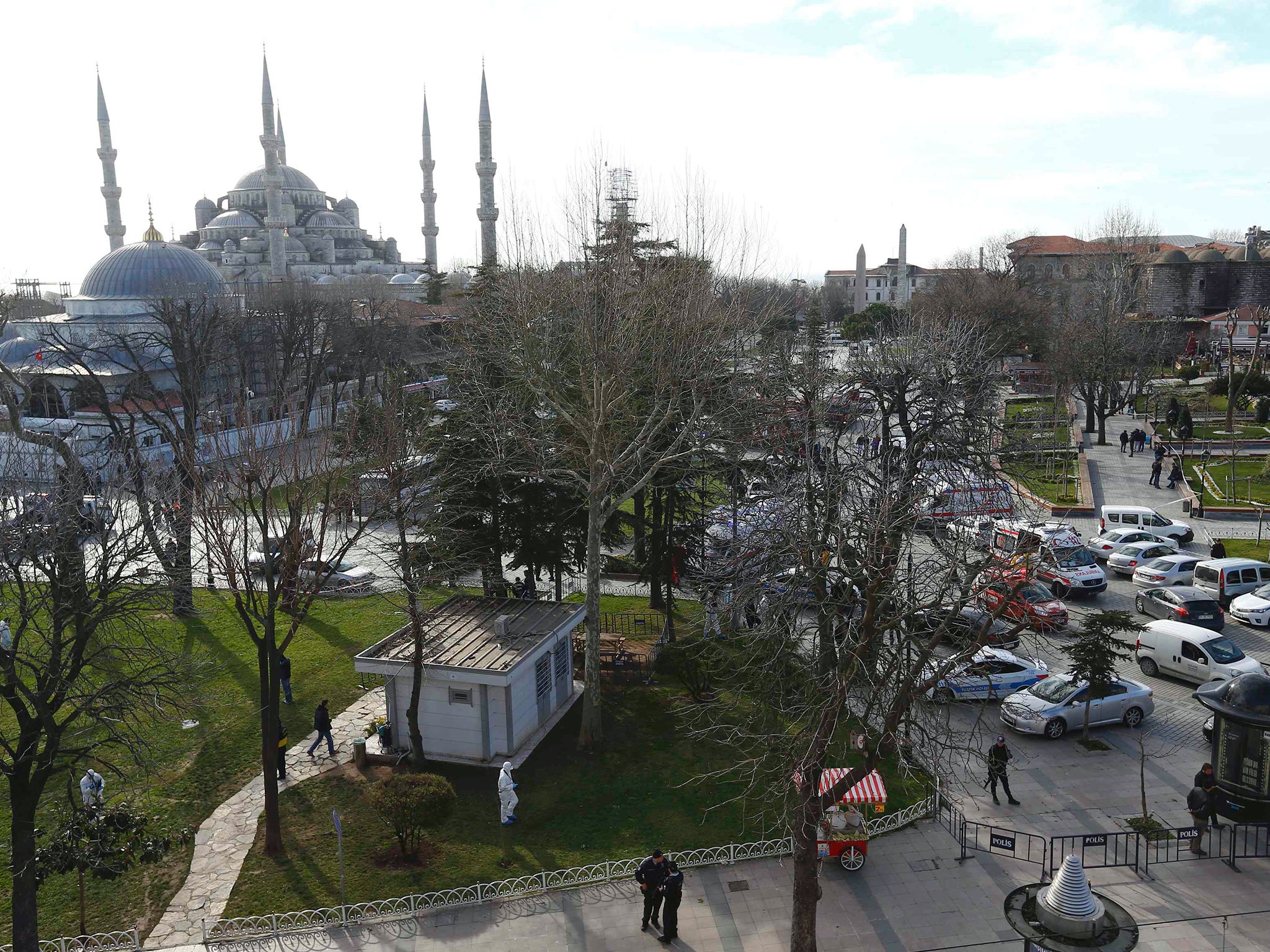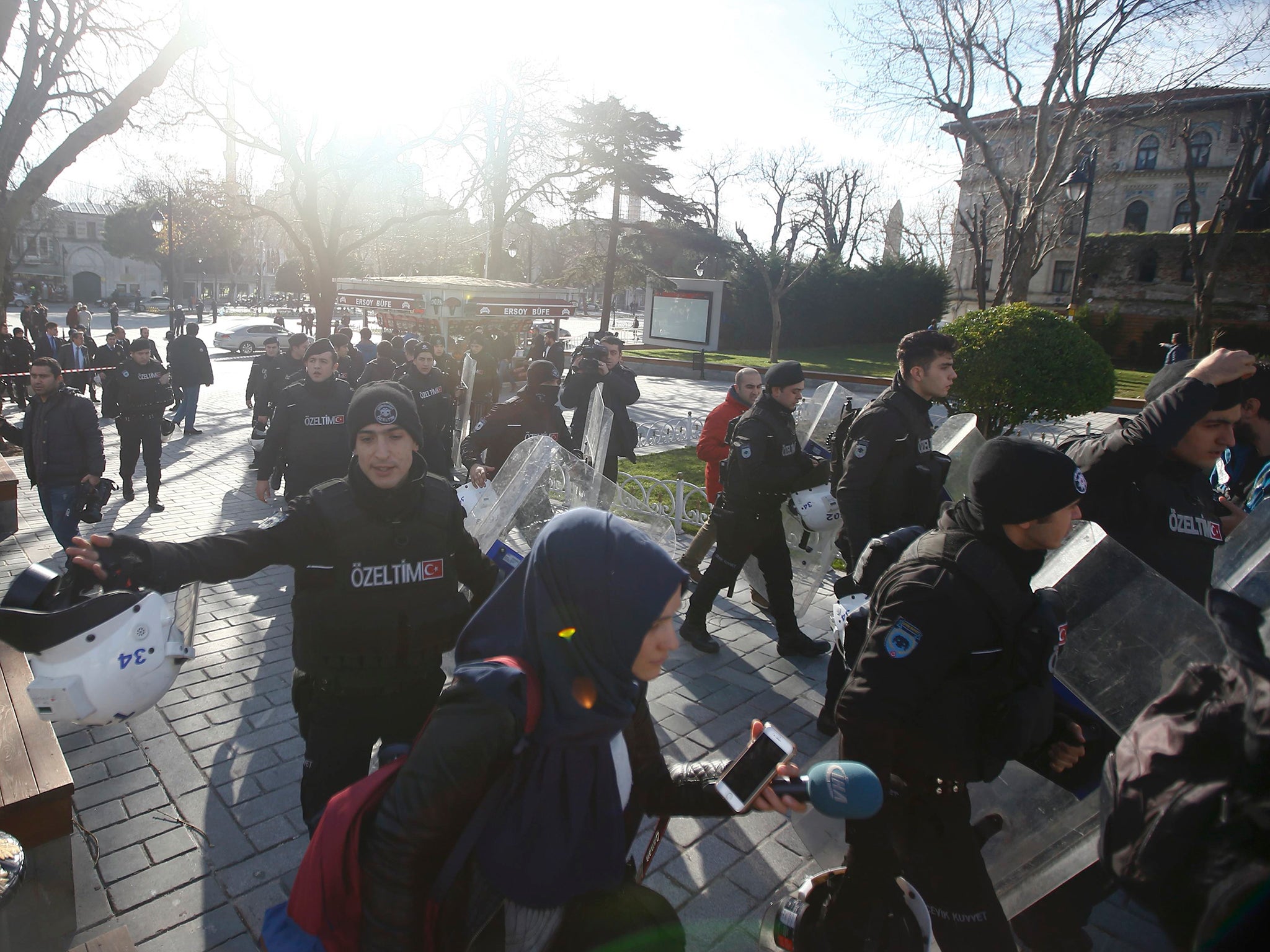Istanbul attack: Suicide bomber was 'Syrian man born in 1988'
Turkey's Deputy Prime Minister said the perpetrator was identified using body parts found at the scene
The suicide bomber who killed at least 10 people in Istanbul was a Syrian man born in 1988, Turkish authorities have said.
Numan Kurtulmuş, the Deputy Prime Minister, said most of the victims are foreigners and that the perpetrator had been identified using his body parts.
The explosion struck Sultanahmet Square, metres from the famous Blue Mosque, at around 10.20am local time on Tuesday.

Erdem Koroglu, who was working at a nearby office, told NTV television he saw several people on the ground following the blast.
“It was difficult to say who was alive or dead,” he said. “Buildings rattled from the force of the explosion.”
The Prime Minister, Ahmet Davutoglu, immediately convened a security meeting with the country's interior minister and other officials.
There was no immediate claim of responsibility but Isis was suspected of orchestrating the attack that appeared to target tourists.
Recent attacks by Kurdish and far-left militant groups in Istanbul have been aimed at police and the military, rather than civilians.

Recep Tayyip Erdogan, the Turkish President, said: “I strongly condemn the terror incident that occurred in Istanbul, at the Sultanahmet Square, and which has been assessed as being an attack by a Syria-rooted suicide bomber.”
Omer Celik, the spokesman for Prime Minister Ahmet Davutoglu's ruling party, also issued a statement condemning what he called “a heinous attack.”
Turkey's Dogan news agency reported that at least six Germans, one Norwegian and one Peruvian were among the wounded, and Seoul's Foreign Ministry told reporters via text message that one South Korean had a minor injury.
As with previous attacks, authorities imposed a partial news blackout, barring media from showing images of the dead or injured or reporting any details of the investigation.
Two major bombing attacks have been attributed to Isis in Turkey over the past year.
More than 30 people were killed in a suicide attack in the town of Suruc, near the Syrian border, in July, while the country’s deadliest ever terror attack came in October.
It killed more than 100 people at a pro-Kurdish peace rally outside Ankara’s main railway station.
Last month, Turkish authorities also two suspected Isis militants accused of planning further suicide bombings during New Year celebrations in the capital.
Turkey has allowed US aircraft to launch air strikes on Isis in Syria and has also bombed parts of the neighbouring country and Iraq itself.
Security is being tightened along its 560-mile border with Syria in a bid to stem the flow of militants going to join the so-called Islamic State, as well as the alleged smuggling of oil from Isis territory.
Tuesday’s attack also came at a time of heightened tensions between Turkey's security forces and militants linked to the banned Kurdistan Workers' Party (PKK) in the south-east.
Additional reporting by agencies
Join our commenting forum
Join thought-provoking conversations, follow other Independent readers and see their replies
Comments
Bookmark popover
Removed from bookmarks